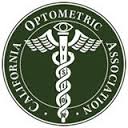California is home to three schools of optometry – UC Berkeley School of Optometry, Southern California College of Optometry (SCCO), and Western University of Health Sciences. Ever thought of practicing optometry in the Golden State? Then you may want to take a closer look at how the profession is legislated. California optometrists and the California Optometric Association (COA) have worked hard to expand the profession’s scope of practice laws, but there is still room for improvement. Here is a brief glance at what optometrists can and cannot do in California.
Optometrists in California CAN:
- Diagnose and treat glaucoma (except angle closure glaucoma and persons under 18 years of age)
- Use topical medications (including steroids and antivirals)
- Use oral medications [including oral acyclovir and hydrocodone/codeine (use limited to 3 days)]
- Prescribe Schedule II (hydrocone products only) and III narcotics.
- Perform corneal scraping with cultures
- Perform debridement of corneal epithelia
- Perform lacrimal irrigation and dilation
- Administer oral fluorescein to patients suspected of having diabetic retinopathy
- Order smears, cultures, complete blood count, acid fast stain, urinalysis, tear fluid analysis, and X-rays necessary for the diagnosis of conditions or diseases of the eye or adnexa
- Perform injections limited to anaphylaxis
Optometrists in California CANNOT:
- Use scalpels or needles for foreign body removal
- Perform injections
- Use lasers (YAG, LASIK etc.)
- Perform probing of the nasal lacrimal tract
The California Optometric Association: 
The California Optometric Association (COA) has a great grassroots campaign that students can be a part of. Student membership is free so apply today! As a member of COA, students are encouraged to attend the COA’s annual Legislative Day in Sacramento. Help shape optometry today by being involved with your school’s AOSA, your state’s optometric association, and attend events such as the Congressional Advocacy Conference (CAC)!
Check out our legislative series for events and scope of practice in other states and Canada!

